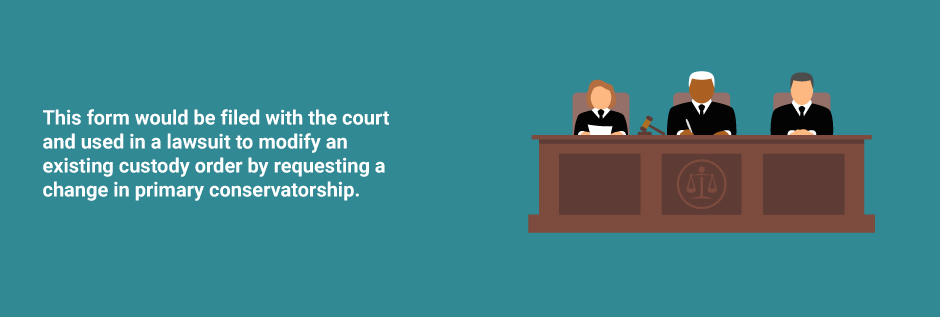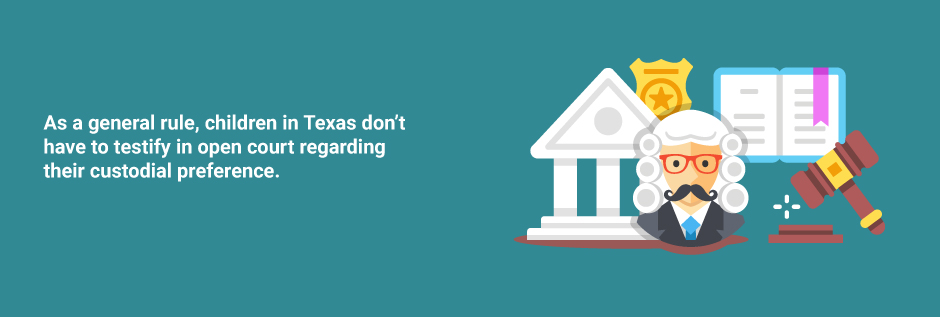Texas Child Custody: Does It Matter Where My Child Wants to Live?
“Does my child have a say in where he (she) wants to live?”

Texas family law attorneys hear this question in most if not all custody disputes. And the answer is yes, it does. But it isn’t the sole deciding factor.
The standard that is applied in custody cases on a near-universal basis is the best interests of the child, which is highly subjective and can vary from one case to the next. Its purpose is to allow judges to apply the circumstances of your family law matter against the statute and make the best decision.
In Texas, children aged 12 and up can express a preference regarding which parent they will live with. Although the court is not legally obligated to follow their wishes, hearing what a child has to say regarding their preferred conservatorship arrangement is a way of determining what outcome is in their best interests.
In Holley v. Adams, a 1976 landmark case in child custody law, the Texas Supreme Court listed the factors that a court must consider when determining a child’s best interests. One of them is the child’s wishes. The same factor can also be a ground for modifying an existing custody order under Texas Family Code Sec.156.101 if the court finds that the modification is in the child’s best interest.
How Can a Child Express Preference?
At one time, the Texas Family Code allowed children aged 12 or older to sign a form called a ‘designation of preference’, in which they could specify which parent they wanted to live with. This form would be filed with the court and used in a lawsuit to modify an existing custody order by requesting a change in primary conservatorship. The state legislature repealed this provision in 2009, mainly because these forms caused or aggravated problems between the parents and their child.

Today, a child of appropriate age can express their preferences by meeting with the judge in the latter’s office. Under Texas Family Code Sec. 153.009(a), judges in a nonjury hearing or trial must interview a child 12 years of age or older to hear their wishes regarding matters such as:
- Which parent has primary conservatorship
- Who has the sole right to determine where the child lives
- Who has possession and access to the child
With children under 12, such an interview is at the judge’s discretion.
What Happens During the Interview?

During these interviews, the judge will try to understand why your child prefers one parent over the other. Is it because your former spouse makes them do their homework or chores before playing video games while your rules are more relaxed? Or because their other parent largely ignores them in favor of personal pursuits?
The judge will also want to assess your child’s intelligence and maturity to determine whether they are making their request from an honest and informed perspective or simply repeating what the parent they want to live with has coached them to say.
There are no standard questions that the judge must ask your child during the interview. After asking them whom they want to live with and why, the court will ask as many questions as they need to arrive at a decision as to what is in the best interests of the child. The judge may never directly ask them which parent they want to live with but may ask non-leading questions to determine what is going on in both homes.
A court reporter may be present during these interviews to prepare an official transcript that later becomes part of the record of the custody action. The parents’ attorneys or an attorney ad litem appointed for the child may be but are seldom allowed to attend the interview, although their presence is at the judge’s discretion. This record is usually sealed to keep one or both of the parents from using this against the child.
Does the Child Have to Testify in Open Court?

As a general rule, children in Texas don’t have to testify in open court regarding their custodial preference. Being in the middle of a tug-of-war between their parents is stressful enough without compelling them to take the stand in front of both parents.
The Wright Firm, LLP Is Here To Help

Child Custody disputes are among the most emotionally challenging family law conflicts. If you are planning on filing for divorce and expect your spouse to fight you for custody, or you believe that a child custody order modification is justified, let the Texas family law team at the Wright Firm, LLP, help. We will help you protect the best interests of your children and provide strong and trustworthy representation both at the negotiation table and in court. Contact us for a consultation to discuss your case and next steps.




Leave a Reply
Want to join the discussion?Feel free to contribute!